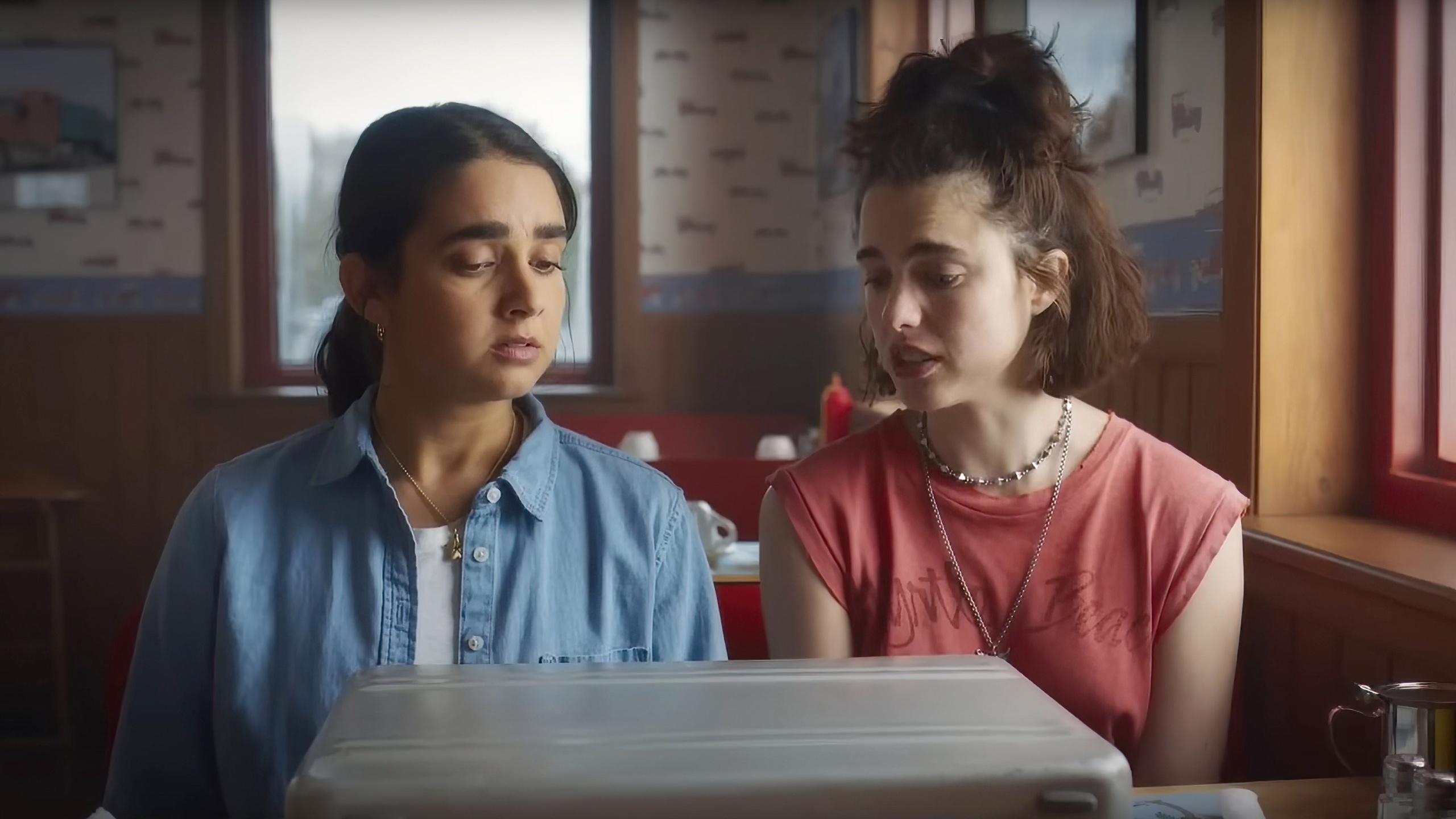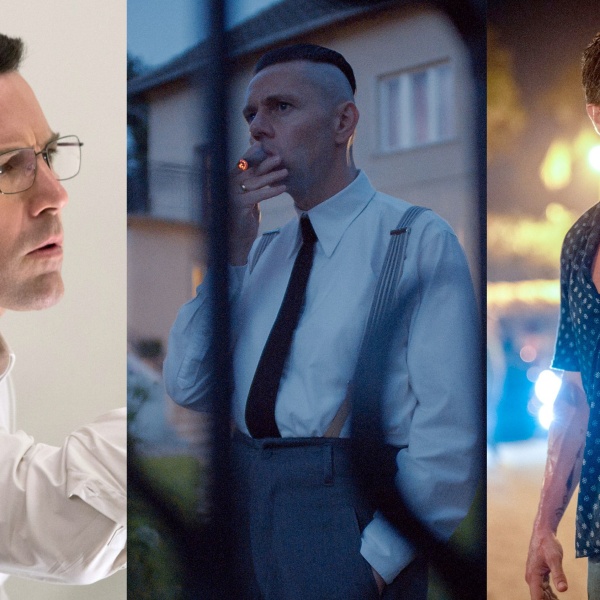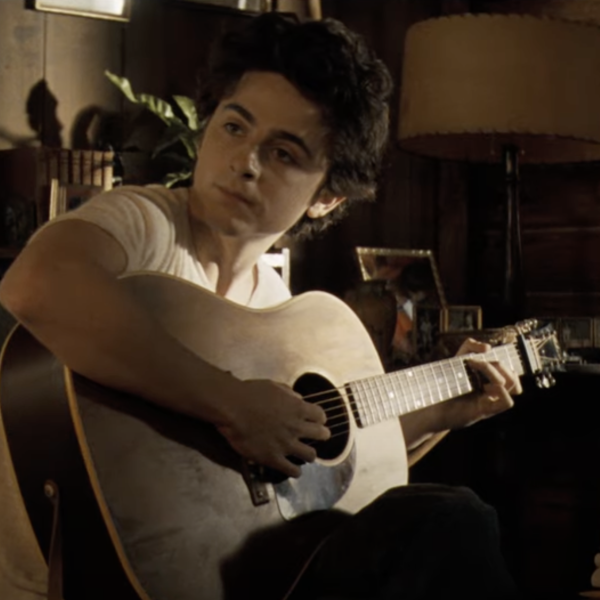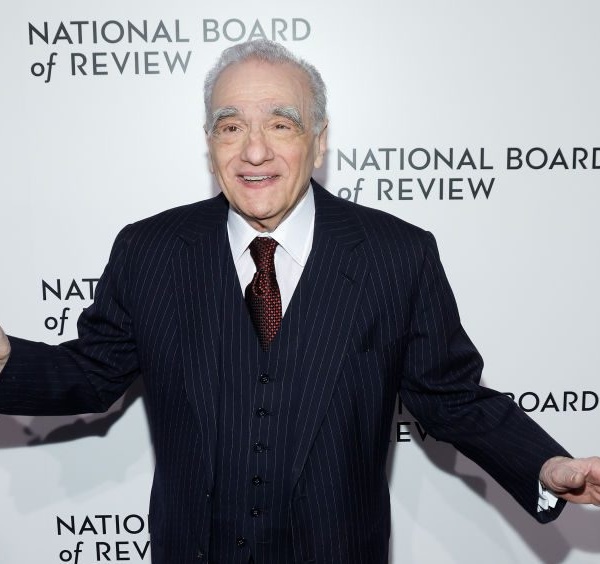Authorship is a major point of contention in queer cinema, so let’s get one thing straight: Ethan Coen’s solo directorial debut is co-written and edited by Tricia Cooke, a lesbian who is also his spouse. Yes, that’s a present tense use of “spouse.” If Cooke and Coen’s unique personal arrangement shocks you, then good luck enjoying a single frame of the married filmmakers’ wildly endearing, decidedly shaggy, and gay as fuck comedy caper. It’s steeped in mismatched genre styles and dark red blood; not to mention, it’s chockful of dildo jokes sure to put a lovable new spin on contemporary audiences’ evolving definitions of found family… member.
Cooked up more than two decades ago with the title “Drive-Away Dykes” in mind, “Drive-Away Dolls” puts an overdue spotlight on Cooke’s indelible impact on the Coen brothers’ filmography. This misadventure in girl-on-girl odd coupling was considered unfinanceable until recently; its boon seemingly provided by renewed interest in the sex comedy and fans champing at the bit to see an Ethan-only directorial effort.
Arriving at its final theatrical destination come February 2024, this genre-straddling lezzie road trip sticks the landing somewhere between 1987’s “Raising Arizona” (made before Cooke met the Coens on “Miller’s Crossing” in 1990, mind you) and Emma Seligman’s raunchy cult hit “Bottoms” from last year.
This spiritually sticky but still dreamlike vision of the U.S. in 1999 dares to sink into the salacious depths of queer night life, while steadfastly propping up its gay heroines as earnestly sweet and crush-worthy. Traveling from Philadelphia to Tallahassee, Jamie (Margaret Qualley) is a fast-talking womanizer from Texas with an insatiable appetite for patronizing, regionally specific nicknames who has pretty good intentions regardless. The soft masc-turned-walking pickup line — who sports the best chain necklace you have everseen, by the way — tags along the semi-scenic Route 1 with the buttoned-up Marian (Geraldine Viswanathan) after Jamie gets caught cheating on her police officer girlfriend, Sukie (Beanie Feldstein, enraged but forgettable?).

The antithesis of her self-invited guest, Marian is a nervous bookworm also hung up on an ex-girlfriend, albeit for different … Ralph Nader related … reasons. She carries around a tome of Henry James’ “The Europeans” for company and is artistically underwhelmed when Jamie paints the outside of their rental car to read: LOVE IS A SLEIGH RIDE TO HELL. The reluctant femme fatale had been on her way to visit an elderly relative in Florida, and maybe do some birding. But when Jamie hijacks their suddenly shared ride — a Dodge Aries with dangerous hidden cargo that was meant to be picked up by someone else — the southern skirt chaser embarks on a clueless mission to get her persnickety copilot laid just the same.
As the foolhardy philanderer and her aimless Cyrano-type blaze through a handful of slutty little destinations (first up, make-out party in Marietta!), a menacing pursuer (Colman Domingo) and two darkly hilarious henchmen (Joey Slotnick and C.J. Wilson) give chase off a tip from drive-away dealer Curlie (a hilarious, pitch-perfect, and tragic Bill Camp). The nonspecific threat of homophobia looms in the periphery of this pre-Y2K period piece, particularly when it comes to Republicans surrounding Jamie and Marian in America’s most penis-shaped state. But it’s the billboarded face of the bigoted Senator Channel (a stupidly excellent Matt Damon) and his cross-eyed wife and kids that casts the strangest shadow — bringing even more mystery to the car trunk’s contents and its dramatically ironic menace.
“Drive-Away Dolls” features as many pussy jokes and stylish flashes of ultraviolence as it has kitschy scene transitions and Linda Ronstadt needle drops. Still, it rarely feels too stupid or too serious to enjoy at face value as a dumb, feel-good movie for dykes. A boundary-breaking storyteller in her own right, Cooke has graced “The Big Lebowski” and other so-called dude movies with her subtly sapphic touch for years. (“Do you like sex, Mr. Lebowski?”) But here Cooke and Coen’s lesbian audience is finally given a front bench seat to a bumpy ride through intrastate criminal scheming told explicitly via outrageous queer film that centers and celebrates women. It’s a movie for lesbians who already love Coen brothers movies, and a perfect entry point for anyone (understandably!) curious about either of those things.

Not only do Cooke and Coen have the fantastic audacity to name a chihuahua after Alice B. Toklas — and make Feldstein and Qualley argue over who has to take the yappy thing following a breakup — the co-writers churn out a dozen singularly funny lines of lesbian-specific dialogue that are sure to be quoted by queer cinephiles for years to come. (“How was it?” “Bouncy.”) Qualley comes on too strong as the heartthrob at first, but the miscalculation mostly works in the movie’s favor; her rock-hard twang is grating but softens up when Jamie does, making the performance easier to love at just the right moment. And Viswanathan is a burning heart start to finish, somehow channeling a poolside sexual awakening scene featuring a younger version of her character that’s later reflected in ever fleck of her still uncertain adult eyes. (When and where will those red cowboy boots first go on display, I wonder?)
In an ideal world, Cooke’s lesbian identity and the intricacies of the younger Coen brother’s open marriage would play no role in “Drive-Away Dolls’” critical assessment; at least no more than Joel’s partnership with Frances McDormand factored into reviews for “Macbeth.” And yet, as prevalent as virtue-signaling and kneejerk reactions are in online discourse today, proper sign posting seems essential to recommending this imperfect but joyous farce in case it gets misunderstood.

Portions of Jamie and Marian’s story skew more Gen X than millennial: a philosophical choice that sidesteps late ‘90s anachronism but could risk some viewers mischaracterizing Coen’s lens as oppressively and unknowingly male. It’s overly tidy in its lesbianism at times (she finished how fast?), and unsuitably erratic in its pacing and lets it comedy go slack at others. But that’s not an issue of POV.
The first of a planned lesbian film trilogy from Coen and Cooke, the inconsistent joy ride was clearly born out of an authentic love for dykes, lesbian bars, and the elements that have always given Coen and Cooke’s collaborations their own special tune. But “Drive-Away Dolls” works in archetypes. Main characters bare all the hallmarks of caricatures outlined on stale cocktail napkins — with every affection and irritation that two-dimensional treatment can bring on full display. Plus, you know someone out there is going to take issue with just how much attention dicks get in this blisteringly short, 84-minute movie that is first and foremost for lesbians.
Still, Coen and Cooke’s chunky ode to sapphic promiscuity oozes queer authenticity for shes and theys who fondly remember — or wish they remembered — a time when queer women were cocksure in a different way. Fiery, fiendish, and flawed, “Drive-Away Dolls” could do more and less, but delivers definitive proof that these atypical authors of lesbian film have something big and want to use it. From a cameo-making Miley Cyrus looking dead to camera to ask “Hey handsome, you want to get plastered?” to surprise opportunities for naughty crafts and a pinch of unforgettable feminist rock-n-roll history, this one is for the gays… on or off the freeway.
Grade: B+
Focus Features and Universal Pictures will release “Drive-Away Dolls” in theaters on Friday, February 23.





